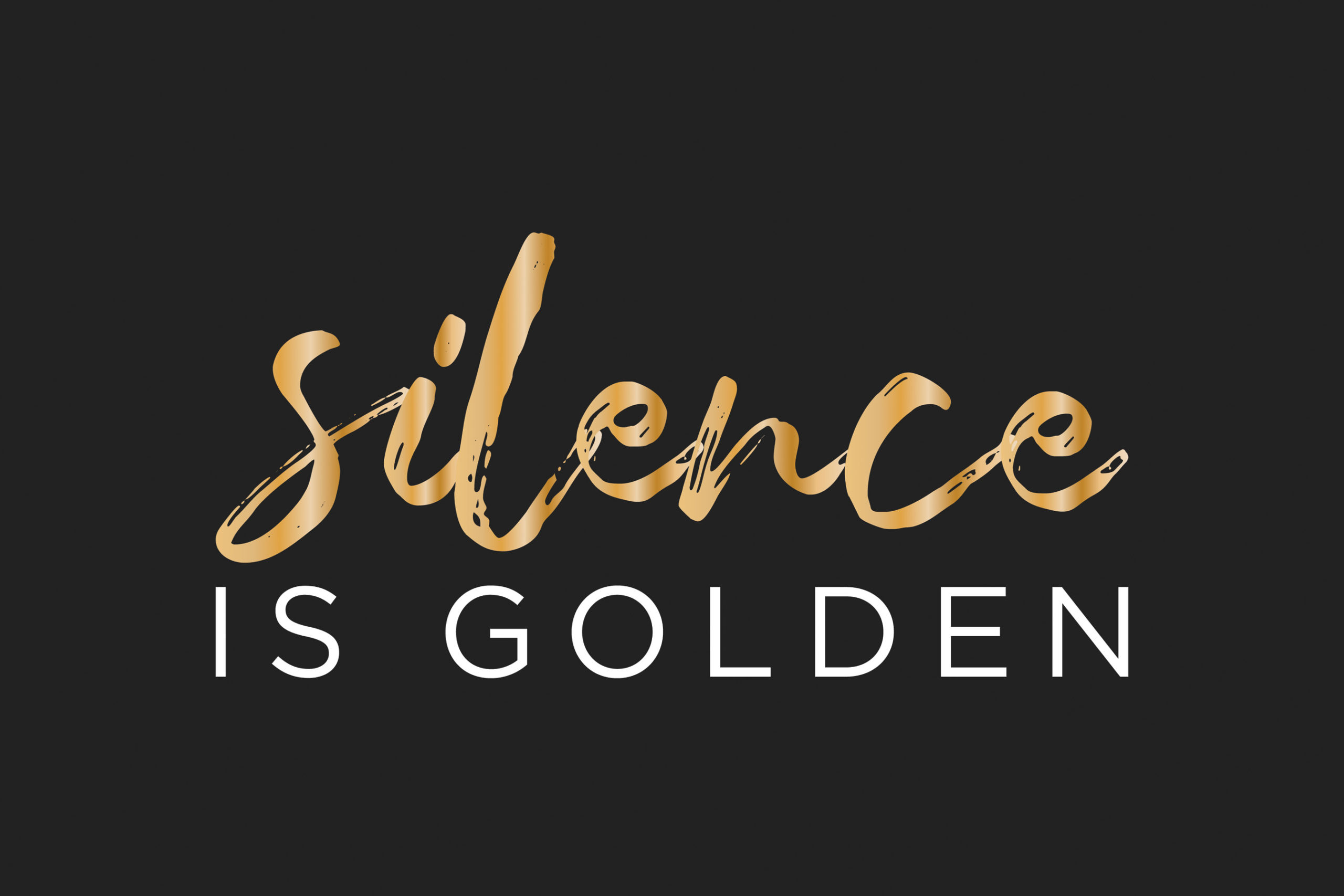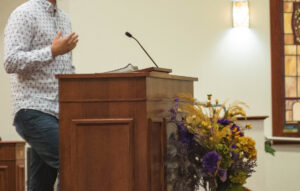By Kenny Digby
Executive Director-Treasurer, Christian Action Commission

Most of us have heard the saying, “Silence is golden.” The rest of the saying is not as well-known—“Speech is silver.” This is an old Egyptian proverb translated into English in 1831 by the poet, Thomas Carlyle. As the use of gold and silver implies, speaking can be good, but silence is better. Silence is preferred. This may not be true in every situation but is true in many situations.
If we play Scrabble, the letters in “SILENT” are the same identical letters in “LISTEN.” God gave us two ears and one mouth. We would do well to listen more and speak less. Can you hear me now? Too often we “hear” but we do not “listen.” The outer ear helps us hear, but the inner ear, brain, and heart allows us to listen.
Discretion is the better part of valor. William Shakespeare put these words in the mouth of Falstaff in King Henry the Fourth, Part One. Caution is preferred over carelessness. To say nothing is better than to say the wrong thing.
Silence may be a sin of omission, but speech can be a sin of commission. To think something inappropriate is a sin, but to say something inappropriate does far more damage. A sinful thought hurts me, but foolish words hurt all those around me. “It is better to keep your mouth closed and let people think you are a fool than to open it and remove all doubt,” Mark Twain wrote.
In court, one swears on a Bible to tell the truth, the whole truth, and nothing but the truth. On the other hand, a witness can “plead the fifth” (the 5th Amendment). He can refuse to answer so he won’t incriminate himself.
One of my college teachers would say that nothing should be said, unless it was true, kind, and necessary. Sometimes the truth is not kind, but necessary. Knowing what is necessary and what is not necessary is a very tough, subjective decision.
Silence is golden, but my Bible professor, Dr. James Travis, would also say silence can be yellow. When we need to break the silence and we don’t, we are a coward — with a yellow streak. Knowing when to speak up and when to button up is one of the toughest decisions in leadership.
When do you call time-out and address publicly an issue? When do you just keep on plowing and praying and hope actions do speak louder than words? This dilemma is a most difficult part of leadership.
If you draw attention to the problem, it will get better or worse in short order — as is true in surgery. The more you stir manure, the worse it smells. But there comes a time to get the shovel — not a pitchfork.
Some leaders are Teflon; some are Velcro (I tend toward Velcro). Some leaders always avoid conflict; some leaders enjoy conflict. The Holy Spirit can give wisdom in these matters. “If any of you lack wisdom, let him ask of God, that giveth to all men liberally, and upbraideth not; and it shall be given him,” James 1:5, KJV. Don’t be a coward in the corner, but don’t be a bull in a china shop.
My maternal grandmother, Gertrude Graham Montgomery, loved Proverbs 25:11 (her favorite life verse), and wanted me to read it at her funeral. “A word fitly spoken is like apples of gold in pictures of silver,” KJV. “Fitly spoken” is the key phrase. Please, Lord, give us leaders who understand not only what to say, but when to say it; or when to say nothing at all.
“Wherefore, my beloved brethren, let every man be swift to hear, slow to speak, slow to wrath,” James 1:19, KJV. My advice to a parent, a pastor, or politician, “Say less, do more.” I don’t mean ‘say nothing,’ but say less.” Loose lips sink ships.
Digby is executive director-treasurer of the Christian Action Commission. He can be reached at (601) 292-3329/office, (662) 284-9163/cell, or by e-mail at kdigby@christianaction.com.








